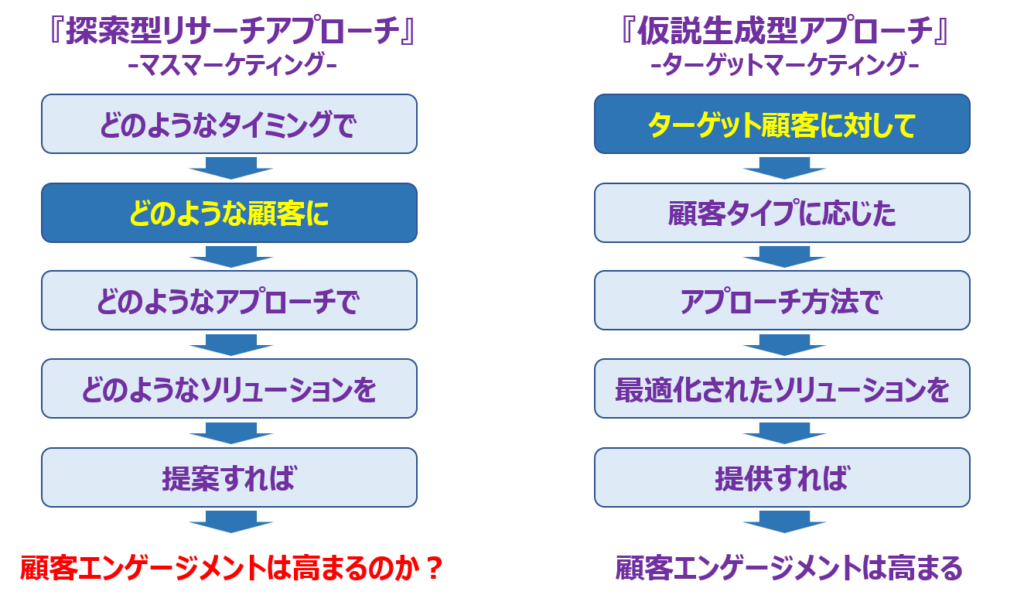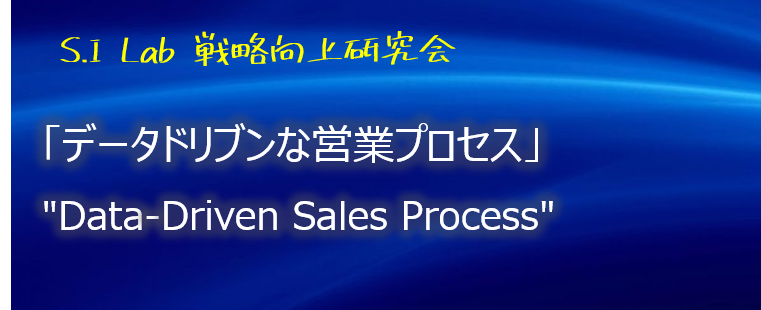
探索型リサーチによるアプローチは、顧客へのリサーチを行い市場や消費者の理解を通じて個別最適化のための糸口を得ることを目的として行われます。
ビッグデータによるデータマイニングなどの手法などにより、大量のデータを分析し、有用なパターンやルールを発見することでマーケティング活動を支援します。
しかしデータマイニングは因果関係が不明な怪しい分析結果が出ることもあるので注意が必要です。
仮説生成型とはデータを収集し、そのデータを分析することで漠然として掴みどころのない問題を具体化する研究手法です。
具現化するのは例えば顧客の治療指針や処方傾向などです。
仮説生成型アプローチの最大のメリットは想像外の結果を得ることができる可能性もあり、新たな攻略の糸口を見出せるという点です。
しかし仮説生成型アプローチの課題は、データ解析技術が必要になります。
医薬品ビジネスで行われる仮説生成型アプローチにおいてもマトリクス分析法を用いれば特別なデータ解析技術を必要とせず、想像以上の結果を得ることができます。
“Data-Driven Sales Process”
The exploratory research approach aims to obtain clues for individual optimization through customer research and understanding of the market and consumers.
It support marketing activities by analyzing large amounts of data and discovering useful patterns and rules using methods such as data mining using big data.
However, data mining may produce dubious analysis results with unknown causal relationships, so be careful.
Hypothesis-generating type is a research method that collects data and analyzes the data to materialize vague and elusive problems.
For example, when you need to embody a customer’s treatment policy or prescribing habits.
The greatest advantage of the hypothesis-generating approach is the possibility of obtaining unexpected results, and the ability to find clues to new strategies.
However, the challenge of hypothesis-generating approaches requires data analysis techniques. Even in the hypothesis-generating approach used in the pharmaceutical business, if the matrix analysis method is used, it is possible to obtain results that exceed expectations without the need for special data analysis techniques.

